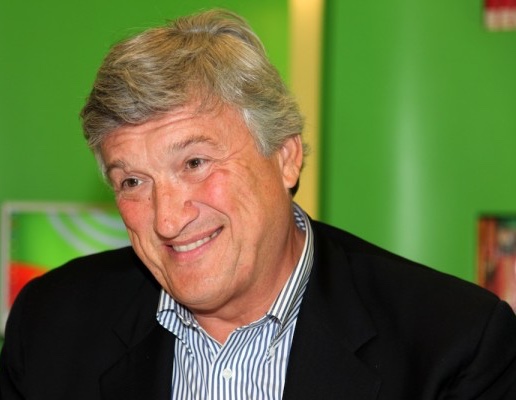SOVEREIGN: Reclaim your Freedom, Energy, and Power in a Time of Distraction, Uncertainty, and Chaos (Hay House, April 2024)
What is the antidote to our unwieldy chaotic and disorienting era? How can the individual make it through, not only unscathed but fulfilled in meaningful ways?
For Yale lecturer Dr. Emma Seppälä the answer lies in embracing and even insisting on a state of sovereignty at every level—from work and family life to face-offs with the most nuanced and tyrannical taskmaster of them all, the self. A bound self as she shrewdly posits, is the key antagonistic force that underlies all the others. It’s the enemy that “depletes you, wears you down, and stops you from attaining your fullest potential.” A bound self is nothing less than a life of slavery—to the critic within.
Unfortunately, her research reveals the ubiquity of this state for people in Western cultures. Across age groups, professions, genders, and ethnicities, we have become subject to “an inner terrorist,” a “predatory relationship” with self that leads to “anxiety, depression, impaired decision-making, fear of failure, and decreased levels of motivation, performance, and persistence.”
Before the chaotic outside world captures us, we are already in chains.
Even at Yale where Dr. Seppälä lectures on management, undergrads who’ve made it into one of the most coveted programs in the world are, with few exceptions, deflated by their own stress, yearning for love, belonging and fulfillment, and “keeping up appearances” in lieu of cultivating “positive social connection”–our most profound need after food and shelter.
So how do we unshackle ourselves from the intrusive tyrannies both within and around us?
Dr. Seppälä believes that we must brave a rigorous self-questioning process toward getting unshackled. A lack of sovereignty is worse than a passive state. It’s nothing less than a form of belligerent self-neglect, even self-negation. The journey from “bound” to “sovereign” is a kind of self-administered deprogramming and reprogramming and it takes guts. The rewards are life-altering—not just awareness but energy, boldness, serenity, and even leadership potential are all outgrowths of the sovereign state. By unchaining ourselves, we become “way-showers.”
The book is as pragmatic as it is provocative, giving readers some hands-on tools to unravel the thicket of ways we bind ourselves into discomfort and meaninglessness. With declarations like “Should is Sh*t” and insights into the toxicity of bad diets and unchecked circadian rhythms, there are several dozen tools, techniques, and prompts here to locate and then unleash the life shackles in all their manifestations—in our emotional life, in our relationships, everywhere.
My own personal favorite is the chapter on “Sovereign Intuition,” a real eye-opener. The “hidden dimension of intelligence,” she argues, is instinctual, and unlike the more reasoned sides of ourselves, intuition tends to want and press us toward sovereignty. In a world where we are literally blared at, 24-7, by social media, phones, messaging, advertising, and the like, we need the power of sovereign intuition more than ever.
“Intuition,” she writes, “is a cognitive skill that allows us to navigate the complexity of our lives in a way our sensory and logical mind — which is limited and much slower — cannot. It’s something you can think of as inner-standing.”
We have, as a culture, been trained out of this gift, taught to bind our inner compasses. The result is an ever-narrowing perception that throws off anything we can write-off as “magical thinking.”
But here’s the problem: intuition isn’t just a gift, it’s a survival tool.
So-called primitive cultures have survived millenia by deploying sovereign intuition, and there can be no fullness of potential without access it’s directives.
Coincidentally, sovereign intuition may be our last and best human advantage over the many forms of artificial intelligence closing in around us.
Seppälä explores the power of sovereign intuition at a deep level, uncovering how high-level CEOs use it to save the bottom line and how the military takes it seriously as a form of hyper-awareness that saves lives. “Honing into your gut” has become an integral part of military training, as important as awareness of the cultural norms where battle is taking place.
In shorthand: Awareness + Courage = Sovereignty.
Fortunately, most of us won’t have to deploy sovereign intuition in military battle, but the concepts Seppälä outlines here are so malleable, so sensible, and so invigorating that it’s hard to think of an adult in any situation in the modern world who could not put them to use.
Sovereign is a kind of permission slip to recalibrate ourselves in the post-pandemic world, a new perspective that puts us first.
Or, as she puts it, “Who decides you? You do.”


